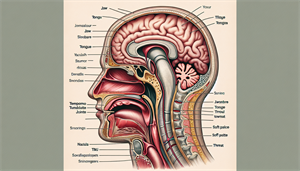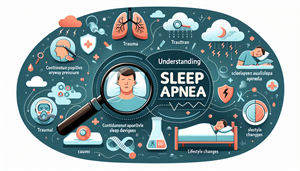
The TMJ-Snoring Connection: Understanding the Link
The link between a jaw joint issue like TMJ and something as seemingly unrelated as snoring may not be immediately clear. However, the connection becomes clearer when we consider the role of the temporomandibular joint in our breathing process. The misalignment of the temporomandibular joint and sleep-disordered breathing can result in airway obstruction and snoring. This happens as the body responds to sleep apnea by pushing the lower jaw forward to open up the collapsing airway during sleep, potentially leading to TMJ disorder and snoring. Indicators such as wear and tear of the teeth from clenching and grinding, a narrow palate, and a large, scalloped tongue may suggest the presence of both sleep apnea and TMJ disorder. Moreover, there is an established association between signs and symptoms of sleep disorders like Obstructive Sleep Apnea (OSA) and the development of first-onset Temporomandibular Disorders (TMD).
Misaligned Jaw and Airway Obstruction
A misaligned jaw can cause the tongue to displace, partially blocking the airway and causing snoring. This can occur because the jaw misalignment narrows the airway, thereby worsening untreated sleep apnea symptoms. In some cases, continuous positive airway pressure (CPAP) therapy may be recommended to help keep the airway open and reduce snoring.
Sleep Disordered Breathing and TMJ
Sleep-disordered breathing conditions, like sleep apnea, can cause the lower jaw to displace, thereby contributing to the onset of TMJ disorder and snoring. The repetitive forward movement of the jaw places strain on the TMJ, heightening the risk of TMJ disorder. In adults diagnosed with mild or moderate obstructive sleep apnea, 36.8% were identified to have temporomandibular joint disorder according to the Research Diagnostic Criteria for Temporomandibular Disorders (RDC/TMD). This significant relationship between sleep-disordered breathing and temporomandibular disorders is linked to both the initial development of TMD and the persistent symptoms of TMD.
Identifying TMJ-Related Snoring
The first step towards effective treatment is to identify TMJ-related snoring. Typical indicators such as morning pain and fatigue, as well as dental issues, can give us a clue. Individuals with TMJ disorder often experience: Aggravated jaw pain in the morning Headaches Tooth pain Sleep disturbances like snoring or sleep apnea. Dental issues that may contribute to TMJ-related snoring include a sore or painful jaw, gasping for breath, tooth breakage, swollen gums, and the consequences of chronic snoring, such as a dry mouth, which could be associated with sleep apnea. These symptoms, combined with daytime tiredness or fatigue, difficulty concentrating, loud snoring, abrupt

